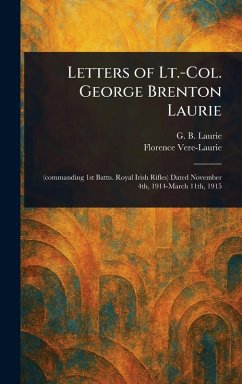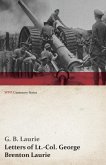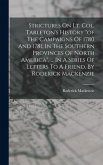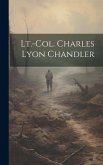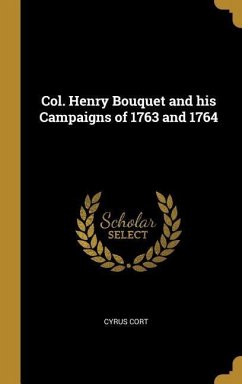"Letters of Lt.-Col. George Brenton Laurie (commanding 1st Battn Royal Irish Rifles) Dated November 4th, 1914-March 11th, 1915" offers a unique and intimate glimpse into the First World War through the personal narratives of a commanding officer. This collection of letters, written by George Brenton Laurie, provides invaluable insights into the daily realities of military life during the early months of the war. A significant contribution to military history, these letters offer a firsthand account of the experiences, challenges, and observations of a leader within the Royal Irish Rifles. Readers interested in personal narratives from World War One will find these letters a compelling and informative resource. Gain unique perspectives on the conflict as it unfolded, captured in the immediate and unfiltered voice of a key participant. This historical document sheds light on the European theater of World War I and the human dimensions of a global conflict. This work has been selected by scholars as being culturally important, and is part of the knowledge base of civilization as we know it. This work is in the public domain in the United States of America, and possibly other nations. Within the United States, you may freely copy and distribute this work, as no entity (individual or corporate) has a copyright on the body of the work. Scholars believe, and we concur, that this work is important enough to be preserved, reproduced, and made generally available to the public. We appreciate your support of the preservation process, and thank you for being an important part of keeping this knowledge alive and relevant.
Bitte wählen Sie Ihr Anliegen aus.
Rechnungen
Retourenschein anfordern
Bestellstatus
Storno

